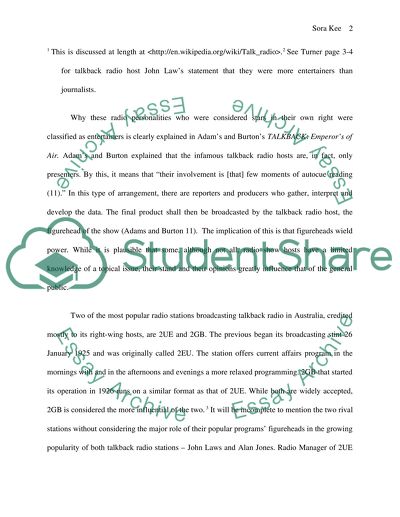Cite this document
(“Is Talkback Radio Important for Democracy in Australia Essay”, n.d.)
Retrieved from https://studentshare.org/miscellaneous/1507095-is-talkback-radio-important-for-democracy-in-australia
Retrieved from https://studentshare.org/miscellaneous/1507095-is-talkback-radio-important-for-democracy-in-australia
(Is Talkback Radio Important for Democracy in Australia Essay)
https://studentshare.org/miscellaneous/1507095-is-talkback-radio-important-for-democracy-in-australia.
https://studentshare.org/miscellaneous/1507095-is-talkback-radio-important-for-democracy-in-australia.
“Is Talkback Radio Important for Democracy in Australia Essay”, n.d. https://studentshare.org/miscellaneous/1507095-is-talkback-radio-important-for-democracy-in-australia.


